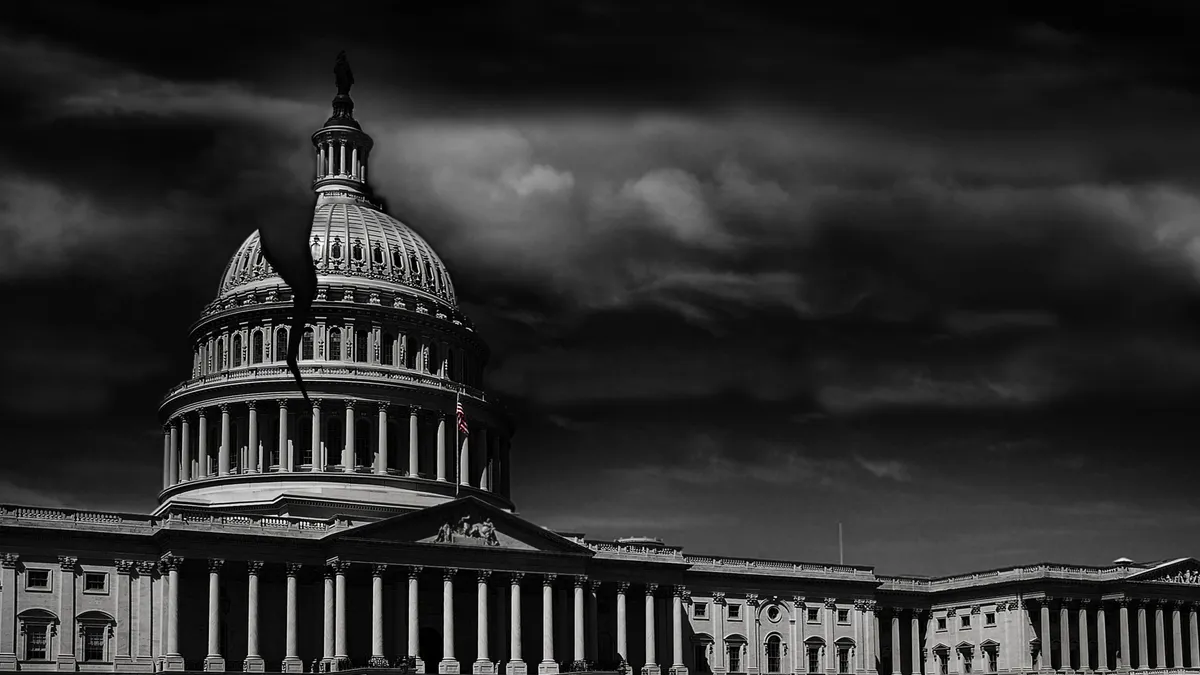Dive Brief:
- Medical device makers are increasingly worried about the negative impact the partial government shutdown will have on their business, AdvaMed executives told reporters on a call Thursday. With FDA unable to accept new medical device applications and user fees, the device lobby estimates approximately 300 applications per month will pile up in a backlog.
- AdvaMed is pushing lawmakers to take up draft legislation to allow FDA to process new device applications and user fees during a government shutdown. The idea, the lobby says, is to avoid a delay in patient access to novel medical products and disruption to medtech companies' bottom lines.
- But the proposal does not appear to be poised for movement. Democrats on the House Energy & Commerce Committee oppose the legislation, a Democratic committee staffer told MedTech Dive.
Dive Insight:
The partial government shutdown, now in its second month, has furloughed more than 40% of FDA employees. That number is set to grow as user fee programs relying on carryover funds run out of money.
AdvaMed CEO Scott Whitaker noted the FDA has three months of device user fee funds remaining in a best-case scenario, and new applications – which average 300 per month – are beginning to pile up.
"For us, that's a bit of a concern: we're talking new and innovative therapies that can help patients," Whitaker said. "As those languish in the pipeline now, the long-term impact on the healthcare system can be real and obviously very negative."
The draft bill language would allow FDA to process new device applications and collect user fees during a shutdown. It would also enable the agency to access "unearned" user fees that are pre-paid by companies, a pool that amounted to $7.5 million at the end of fiscal 2017.
The committee is slated to hold a hearing on the government shutdown on Jan. 31 where FDA is certain to be a topic of conversation.
"These are unprecedented times in terms of the shutdown, and some Hill reactions may be less about the merits of our language and more a reflection of the larger political climate we're offering it in," Greg Crist, AdvaMed Chief Advocacy Officer, told MedTech Dive.
Prescription drug user fees are set to run out within a month, but PhRMA spokesperson Holly Campbell said the drugmaker lobby cannot comment on the AdvaMed proposal.
"As the gold-standard for regulatory review, it's critical the FDA continue to fulfill its public health mission. As an innovative industry, our companies depend on certainty and predictability to bring tomorrow's treatments and cures to patients. We support FDA using its existing authority to deploy user fee funds to continue to review applications," PhRMA said in a statement.
The Alliance for a Stronger FDA, which advocates for FDA appropriations, said its efforts are focused on getting Congress and President Donald Trump to reach an deal to put FDA back to work.
"FDA touches every American every day, usually multiple times. Yet, the protection that FDA provides is largely unseen by the public," Alliance Executive Director Ladd Whiley told MedTech Dive. "It's a vast responsibility and, at the moment, that mission is not fully-staffed nor fully-active."
If the shutdown continues for long, it is possible FDA will employ "creative re-interpretations of the law" around user fees, according to Howard Sklamberg, a former FDA deputy commissioner for global regulations operations and policy. FDA has a good system to track user fees, he said on a webinar Thursday, but it is not like a law firm where employees track billing by the minute.
"It is a very big challenge for the people running the place to say you can work on this and this but not this other thing," Sklamberg said.
In the event the shutdown drags on and a hefty device application backlog develops, Whitaker said AdvaMed doesn't plan to blame FDA if it cannot meet user fee program timelines such as the 90-day clock for 510(k)s.
"I don't think that will be FDA's fault, it is the reality of what we're dealing with," Whitaker said. "It is something we are reminding Congress, however. In the MDUFA agreement they established certain timelines, and if Congress doesn't act to deal with this issue in the short term, those timelines will be threatened and create a problem for everyone."











